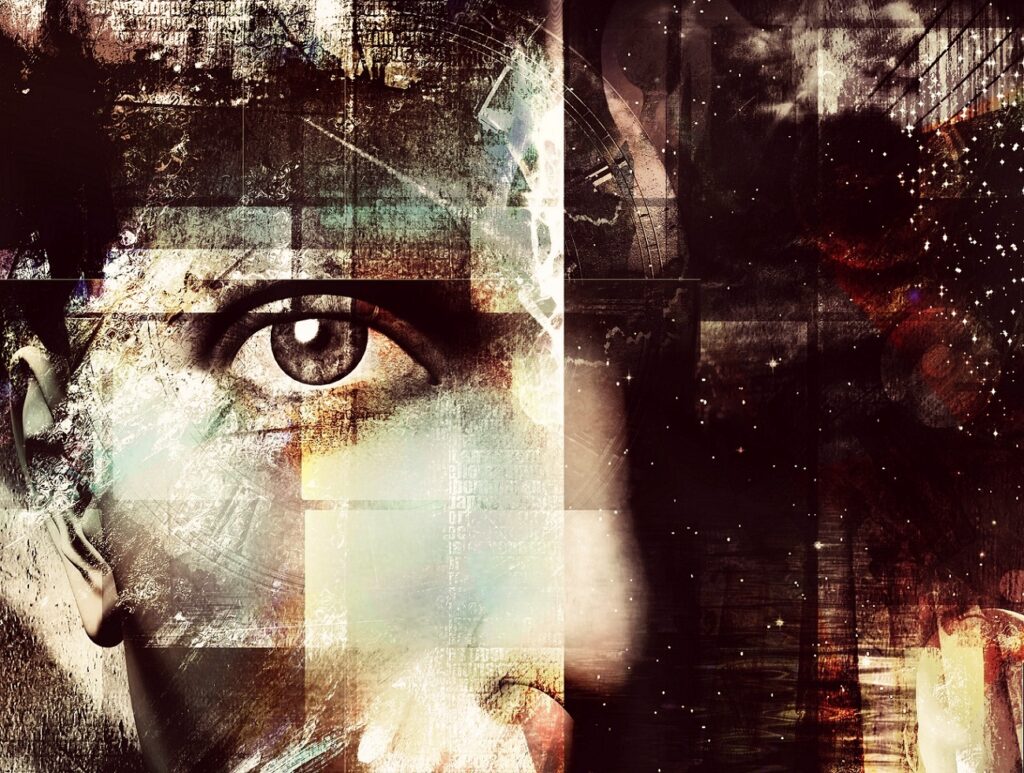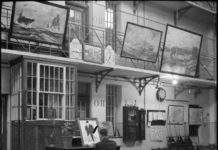“…This is a very disturbed little boy with obvious homicidal and suicidal ideations. Without consistent psychiatric care and an intense psychopharmaceutical regimen, I foresee little chance for him to succeed…”
I was eight years old when the report this excerpt comes from was written. It is taken from one of the many reports written about me during one of my dozens of commitments to psychiatric facilities. By the time this was written, I was on my third commitment and I had already been on adult level antipsychotic medications since the age of three.
Give that a second to absorb. I was eight years old.
What does it say about a child when a psychiatrist calls them “very disturbed,” and is able to so definitively identify “obvious homicidal and suicidal ideations” in them?

I have never shied from the reality of my mental illness. I did not have the luxury of pretending I was okay, not ever. Mine were not subtle delusions, or the quiet madness that festers deep inside, out of sight from those around you. My psychoses were volatile things that violently intruded into every aspect of my childhood. In those early years, when I was too young to know what was wrong with me or how to cope with it, I struggled just to get through one day without wishing I was dead.
Can you comprehend the loneliness that accompanies the knowledge that there is something deeply, intrinsically wrong with you, but nobody knows what it is or how to help you? Can you imagine the helplessness that comes with knowing that you cannot control your own mind, that you can’t stop the demons in your head from screaming at you or seeing awful things that make you wish you were blind?
Do you have any idea what it is like to be a child who knows for a fact that their parents are scared, not just for them but of them?
I was seven when I learned that my father was scared of me. He told one of my doctors that he was afraid that he would wake up one night to find me standing over him with a knife. He was afraid I was going to hurt my younger siblings. My own father, the man I idolized as the epitome of all that was cool, was scared of me.
When you’re seven years old and everyone knows you’re crazy, there doesn’t exist a lonelier feeling. It’s cold, and it makes you hate everything about yourself.
To cope with the loneliness that spawned from my being seen as sick by others of my age, I kept away from most other children. Reading allowed me to escape for a time. I found some balance of peace spending time outdoors by myself. I loved animals and spent more time with them than anything else. Animals and I got along great; they didn’t ask me what was wrong with me, they were just happy I was around.
There were certain voices in my head that weren’t antagonistic, which led to hours of conversations with them. To my young mind, the voices were real people; the bad ones scared me and made me hate myself, but the others… they became my friends.
The only real friend I had outside of my own head was Michelle. I met her when I was eight. We bonded over a mutual love for Alvin Schwartz’s Scary Stories to Tell in the Dark. She was a tomboy who thought nothing of walking through a creek or catching lizards. She wasn’t scared of me despite all the stories told about me in school. I remember the way she used to laugh at fart jokes and the way she knew all about comic books and Ninja Turtles.
Our friendship lasted only a year. When I was nine, I remember my father getting a phone call. I remember the look in his eyes when he handed me the phone. Michelle’s aunt was on the phone. Michelle had been out with her sister the night before and it had rained. Her sister’s car hydroplaned on a corner and wrapped itself around a tree. I remember everything going very quiet in my head as she was talking. Aside from a couple of my pets dying, this was my first experience with death.
Loneliness is much sharper and cuts much deeper when you experience it after having a good friend. Before, when I was ostracized for being crazy, I didn’t have anything to compare it to. The loneliness was just a state of being. It sucked but I was used to it. After Michelle died, not having any real friends bit deeply into my soul.
Fast forward to 2002. I am 19 years old and have related this story to a reporter from a jail cell. We’re exploring my mental health and the life events that led to my being incarcerated. He tells me that he can’t find anything on Michelle’s death, or in fact any record of her whatsoever. I call my grandparents and ask them to go through my old yearbooks and still, we can’t find her.
We can’t find her because my only childhood friend never existed. There was no little green-eyed girl named Michelle Lavender who died in a car accident in 1992. Yet… I remember her. I remember her clearly! This contradiction threw me into a tailspin. It led to a five-year period of discovering that many things in my past I remembered happening never did.
If we are the sum of our experiences, and our experiences are based on our memoirs and the emotional impact they had on us, but none of those experiences actually happened, what does that make me? If the sum of my experience exists only as fractured memories that never happened, who am I?
I don’t know. But what I do know is that it has led me to a near-constant questioning of every aspect in my life. In 2019, I met the woman who has become my wife. She is everything I ever hoped for. We spend almost two hours every morning on the phone, see each other in video visitation at least every other week. She knows everything about me. She knows about Michelle. She knows the crippling fear I have of my own identity, the questions I have about my reality.
She knows that I fear I am actually sitting on the phone for two hours a day or more, talking to a dead line.
She knows that I fear that I am going to wake up one day to find that I am strapped to a hospital bed, having hallucinated these last twenty-plus years and all the good things that have happened, my growth and my journey towards being a real human being. I fear I will find that my nearly five-year relationship with my beloved wife has been nothing more than a fever dream, just another desperate attempt to cope with this fractured landscape of broken mirrors that is my mind.
If she is a dream, if my small successes in life are just madness, then let me sleep. Better to be crazy than to be nothing.















l do upset for you too.noone does not request thing like this. one of the side effects of antipsychotics is anger. this clearly writing in it prospectus but psychiatrists deny this too.l also is very angry. this is side of effects antipsychotics.
Report comment
Kyle, I am heartbroken that you were put on antipsychotics at the age of three. IMHO, I think that’s criminal, given the fact that all doctors are taught in med school that the antipsychotics can create “hallucinations” and “psychosis,” via anticholinergic toxidrome.
https://en.wikipedia.org/wiki/Toxidrome
Most certainly, an “adult level” of antipsychotic medications, in a three year old, would likely have caused anticholinergic toxidrome poisoning. I hope your wife is real.
You didn’t mention whether or not you are still on the antipsychotics. But if you are, don’t go off the antipsychotics without proper help … and research. Since withdrawal from the drugs can create a “drug withdrawal induced super sensitivity manic psychosis,” which almost certainly would be misdiagnosed as a “return of your illness.”
You found MiA, which is a good resource … which can also point you to truth speaking doctors and authors, like Dr. Peter Breggin, Dr. Peter Gotzsche, Dr. Joanne Moncrieff, et al.
May God bless you on your healing journey, Kyle, and thank you for sharing your story.
Report comment
It reminds me of at least one TED talk about the meaning of being. The millenial who am I?.
It narrated I think the case of a professional athlete that was very different from her previous self after an accident I think.
I concluded that regardless she seemed different, to me, somehow, at some unexplainable level she was the same being, just did things differently, felt differently, etc.
Several years forward, I find the definition of human being when it comes to human rights, the basic undeniable humaneness that we homo sapiens posses is for me ill defined.
Still, after millenia, that basic thing that makes human, same and different, has no answer, but somehow can be seen in others and oneself.
I see also parallels with some parts of my life, but, I think those for now are hopefully just for me.
Report comment
I agree with SomeoneElse, Kyle. It should be a criminal, punishable-by-law act to use any psych drug on a young child. Any psychiatrist who would make such a statement about an 8 year old should lose their medical license. That trademark combination of ignorance, self-assuredness and arrogance — which the most destructive psychiatrists all possess — is on full display here.
Thank you for sharing your story. I hope one day society will re-gain reason, and understand that “psychiatric help” is the problem, not a solution, and that forced, non-consensual psychiatric “help” (which includes any “help” that’s inflicted on a minor) is the most destructive form of it.
Report comment
I don’t know how relevant it might be, and I don’t want to add to speculation about KH, but on why neuroleptics would be prescribed to youngsters less than 5yrs is autism. Particularly decades ago in it’s somewhat “classical” description.
In those bygone? days, autism was diagnosed after 2hyrs of age, and usually before the primary school years, or around less than 6-7yrs when kids were starting to learn how to read and write.
In the belief it might help them. And autism if I am not misremebering, before the DSM-IIIR was somewhat related or akin to “deep psychosis”…
And that could explain emergent psychosis on kids medicated with neuroleptics for “autism”, way back then.
Report comment
The answer is simpler and more grim – they prescribe it to keep them quiet. “Antipsychotics” reduce aggression, so any sign of violence or aggression from an “autistic” kid and out comes the Risperdal or Abilify prescription. Also often used to calm down aggression that’s actually CAUSED by stimulants for “ADHD”. Doesn’t even require a “psychosis diagnosis.” If they’re annoying enough and have a label, they are fair game for antipsychotics.
Report comment
But I guess not 30yrs ago. Then around the “Rainman” movie autism was in vogue.
As psychosis and schizophrenia were after “a Beautfull mind”. So, then, 30yrs ago, I think autism was a likely candidate for neuroleptization in kids under 5yrs. I admit, I might seem speculating on KH, which I don’t want to do.
And ADHD was just taking off, so…
Funny, around 3-5yrs of age I went apparently to some teaching/research place with a kid possibly with noticeable autism, I remember he waving at me, when I saw him last time I was there.
I didn’t remember that until a few years ago, and it burn my heart with love remembering that.
They grilled him, making him uncomftable to force me to take an IQ test which I refused to do. He rocked back and forth, kind of freaky, because he couldn’t do the puzzles, and that forced me to do them. “Maybe you can help him out”…
And I did the test so he didn’t freak out. Until the last final test, a piece puzzle, quite large for my age, in which I refused to fit the last piece, he tried fitting it, and I glanced at him, and he stop, he cooled down, laid back on his chair, and the clock kept ticking.
I imagine we both were happy being defiant, I know I was, and I remember he looked so. For the camera, which I imagine there was, it most have being a beautifull sight, both of us, a grandiose pair, sticking it up to the “man”!.
That’s why they took me the last time, for another puzzle. Which I refused, he was not to be there, a last try to see how far my IQ went. Last time I saw him, I even kind of remember/imagine he even smiled!, very briefly, very sincere. Just to go another way, lead by the hand of some… folk…
Psychologists, not psychiatrists, they tortured him, to get me a score.
And for all the kerfuffle of autism and interpersonal relationshionships, if he waved at me, he was a great kid. He got all the social stuff to a T.
I’ll treasure that for as long as I remember…
Report comment
Thank you for a beautiful post!
Report comment
It’s called making a heartfelt connection, not some idiotic notion of “therapy”.
Report comment
Finishing my recollections on this small story, in case I don’t tell it anywhere else.
My unclear recollection of my friend handwaving at me is because I was trying to remember him waving his hand with his left hand. Impossible if holden by it by his guide.
Then, realizing that, my recollection is he handwaved with his right hand!,he turned left!, not right, hence my confusion.
Another recollection is that in the final, big puzzle, after I left the last piece, he took a tiny amount of time to try to finish it after I stopped: he was following my moves while I did the puzzle!.
That’s why he didn’t try to finish immediately, he was following my trail!, he was so smart!. We were alike in that, I rather follow arguments and puzzles than do them. Now I can imagine him concentrated following my motions, that makes me happy, a full companion!.
Supporting that, I got jealous in another puzzle, smaller, but not that small, because he was doing it, and he got sort of stuck somewhere, and I couldn’t see how to finish the thing. He was doing the puzzle, then, suddenly, he saw a way out and that made me jealous and upset, I could see then, and only then, a way out, and that reaction from me sort of inhibited him. And I couldn’t finish the puzzle because it was his, and then WE got stuck…
I felt deceived, like he was playing dumb. I regret to this day feeling angry at him, I really do, and now I kind of understand why: I behave like a ahole, and we were both being deceived, and that pisses me off.
Sorry…
Report comment
Kyle, thanks for sharing. Your childhood was truly harrowing, and I am thankful that you are alive to bear witness to your journey, and that you have a loving partner to help with healing.
The agony and loneliness of feeling trapped inside a broken brain is excruciating. You are a compelling writer, and hearing from you about your own journey gives me and others hope, and demonstrates that we humans are capable of incredible resilience.
Thanks for this; looking forward to reading more of your words!
Report comment
I have D.I.D. and autism. I understand this experience more than I care to share. Know you aren’t alone, I think like this too, I just had my own childhood experiences that were different.
Report comment
Prescribing psychotropic substances to children should be outlawed.
Report comment
A heartbreaking story that is beautifully written. The language is pure poetry. I can’t even imagine the devastation of learning that the person who meant the most to you in your childhood was imagined. Thank you for sharing this story; no child should be put on antipsychotic drugs at such a young age, especially when the problem may not only have been resistant to treatment with pharmeceuticals but may have been caused by those medications.
Report comment
Kyle,
The adults in your life clearly failed you. I wish you the best in your fight for Clemency.
Report comment